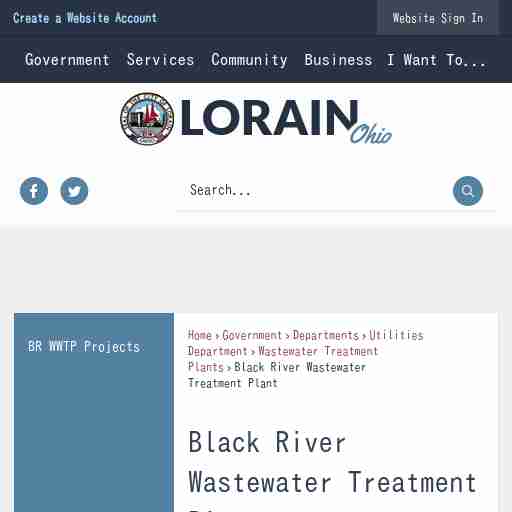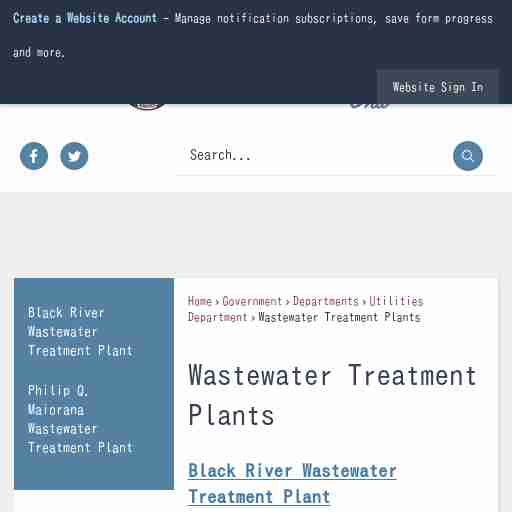Waste water treatment is an essential process that ensures the safety of our environment and public health. Black Creek Waste Water Treatment is a company that specializes in providing waste water treatment solutions to various industries. In this blog post, we will discuss everything you need to know about Black Creek Waste Water Treatment.
Black Creek Waste Water Treatment is a company that provides innovative and sustainable waste water treatment solutions to various industries. They offer a wide range of services, including:
There are several reasons why you should choose Black Creek Waste Water Treatment for your waste water treatment needs:
Black Creek Waste Water Treatment offers a wide range of products to meet your waste water treatment needs. Some of their products include:
A: Waste water treatment is a process that removes impurities from wastewater before it is discharged into the environment or reused. The process involves physical, chemical, and biological processes to remove contaminants from wastewater.
A: Waste water treatment is important because it helps protect public health, the environment, and conserves natural resources. Untreated wastewater can contain harmful pollutants that can cause waterborne diseases, harm aquatic life, and pollute the environment.
A: The time it takes to build a waste water treatment plant depends on various factors such as the size of the plant, complexity of the system, and regulatory requirements. Typically, it can take anywhere from 1-3 years to design and construct a waste water treatment plant.
Black Creek Waste Water Treatment is a reliable and trustworthy company that provides innovative and sustainable waste water treatment solutions. They have the expertise, experience, and certifications to provide customized solutions that meet your specific needs. Their commitment to sustainability, affordability, and innovation makes them an excellent choice for your waste water treatment needs.

The Black River Wastewater Treatment Plant treats wastewater from approximately 75% of the City of Lorain, as well as Sheffield Lake, Sheffield Township, and ... HomeGovernmentDepartmentsUtilities DepartmentWastewater Treatment PlantsBlack River Wastewater Treatment Plant Black River Wastewater Treatment Plant The Black River Wastewater Treatment Plant began service in 1954 with the installation of sanitary sewers throughout the City of Lorain and the completion of a siphon chamber under the Black River. The Black River Wastewater Treatment Plant treats wastewater from approximately 75% of the City of Lorain, as well as Sheffield Lake, Sheffield Township, and Elyria Township. It is located on the east bank at the mouth of the Black River, and is the older of two wastewater plants in Lorain. The present site of the plant was once open water of Lake Erie. Steel pilings were driven into the lake, the water pumped out, and then back-filled to create the existing site. The original plant was approximately half of it’s current footprint. It was originally designed as a primary treatment plant only. Sewage was settled in two primary tanks and the clear water or “effluent” was then discharged into Lake Erie. Sludge that was produced was thickened through a vacuum filter and buried. In 1972, the Black River Wastewater Treatment Plant was expanded to add secondary treatment to its process to meet new standards set forth by the Clean Water Act. The plant transformed into a conventional activated sludge treatment plant. Chlorination, known commonly as disinfection, was also added to further polish the wastewater before the effluent was discharged to Lake Erie. Incineration was also added to aid in disposal of the sludge produced during the treatment process. By 1979, due to the price of fuel oil and air pollution regulations, operating the incinerator became impractical and the process was eliminated.

The Black River WWTP was initially constructed with a capacity of 2.275 MGD. In 1986, the Black River Facility was re-permitted to a capacity of 3.0 MGD. The ... During the 1920s, two wastewater treatment plants were constructed and several outfalls were installed, and over the next 40 years, the collection system was expanded to accommodate the growing city. Most of the pre-1960s sewer collection system was constructed of four-foot lengths of vitrified clay pipe with lime cement mortar joints. During the 1970s, major improvements were conducted in the wastewater outfall system and treatment was consolidated at the site of the Black River Wastewater Treatment Facility using USDA funding. The Black River WWTP was initially constructed with a capacity of 2.275 MGD. In 1986, the Black River Facility was re-permitted to a capacity of 3.0 MGD. The capacity increase was granted to allow the facility to maintain effluent flow compliance and accommodate non-excessive inflow and infiltration flows. In 1993, the hydraulic capacity of the Black River WWTP was expanded from 3.0 MGD to 3.75 MGD with a corresponding peak capacity of 7.50 MGD. Dunn was originally called "Lucknow" and was renamed in 1873 The city of Dunn was incorporated on February 12, 1887, at which time it was a logging town and a turpentine distilling center. The name honors Bennett Dunn, who supervised the construction of the railway line between Wilson and Fayetteville. All City of Dunn facilities are open 8 a.m. to 5 p.m., Monday through Friday. © 2023 City of Dunn, North Carolina

Learn more about the Black River and PQM waste water treatment plants. Create a Website Account - Manage notification subscriptions, save form progress and more. HomeGovernmentDepartmentsUtilities DepartmentWastewater Treatment Plants Black River Wastewater Treatment Plant Philip Q. Maiorana Wastewater Treatment Plant Black River Wastewater Treatment Plant Philip Q. Maiorana Wastewater Treatment Plant Lorain Income Tax Payment
---

The new Tomahawk Creek Wastewater Treatment Facility is providing wastewater treatment capacity to JCW without any need for additional treatment capacity from ... Tomahawk Creek Wastewater Treatment Facility Upgrade Tomahawk Creek Wastewater Treatment Facility Upgrade Tomahawk Creek Wastewater Treatment Facility Upgrade Faced with the need for a more efficient, sustainable treatment plant that could adequately serve its growing population and meet new discharge regulations, Johnson County Wastewater (JCW), located in the southwest portion of the Kansas City metro area, turned to Black & Veatch to help expand its Tomahawk Creek Wastewater Treatment facility, resulting in upgrades that saved the county approximately $16 million a year. The county had known for years that the facility’s capacity was maxed out; that the more than 50-year-old infrastructure was not prepared to live up to the efficiency standards the county envisioned for its future, and that it would fail to accommodate increasingly stringent regulations. On top of that, JCW had spent decades sending 60 percent of the Tomahawk service area wastewater to a neighboring utility for treatment due to lack of capacity. The cost for that treatment had been steadily rising and represented a significant current and future economic risk to JCW rate payers. The original Tomahawk Creek Wastewater Treatment Facility, built in 1955, had been dutifully treating 7 million gallons per day (MGD) of wastewater flows for decades. But in collecting wastewater from both the Indian Creek and Tomahawk Creek watersheds, which have flows ranging from 15 MGD on average to above 150 MGD during wet weather, the facility had more than maxed its capacity.